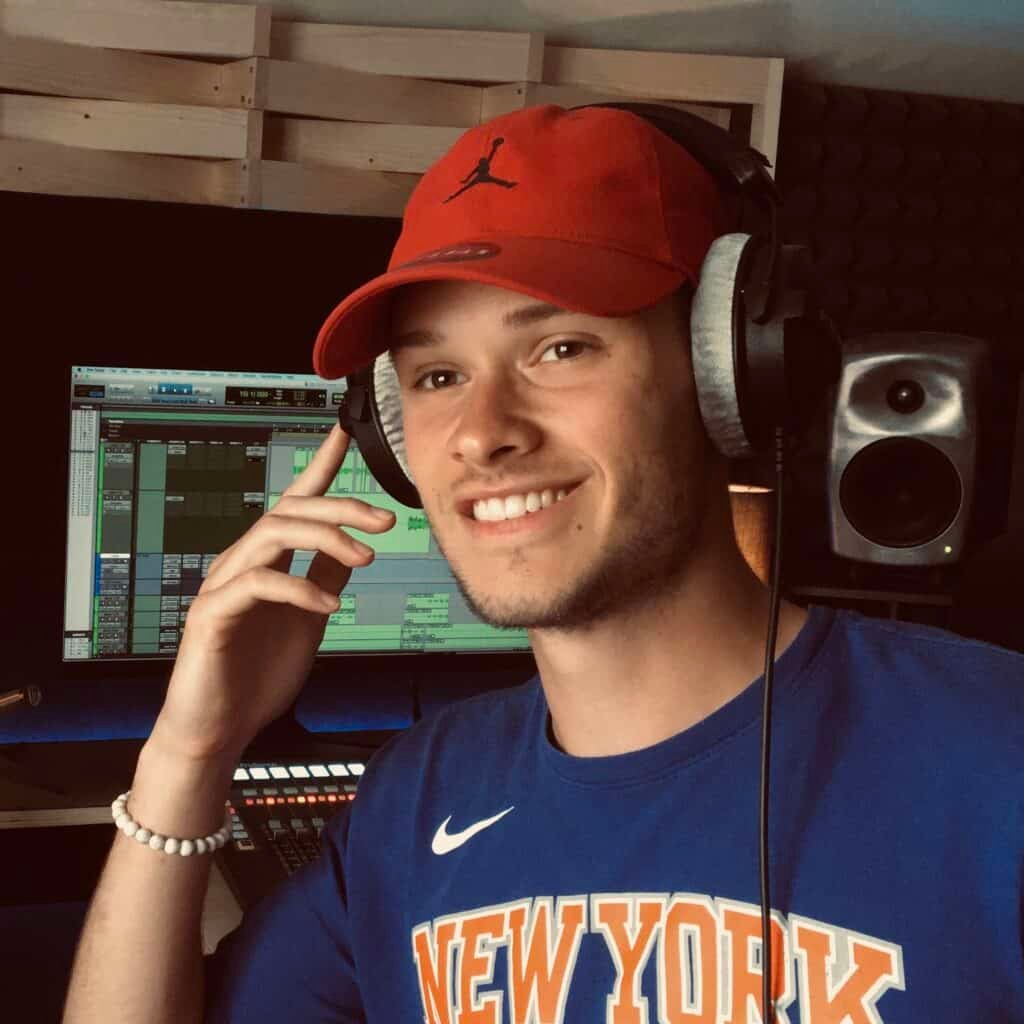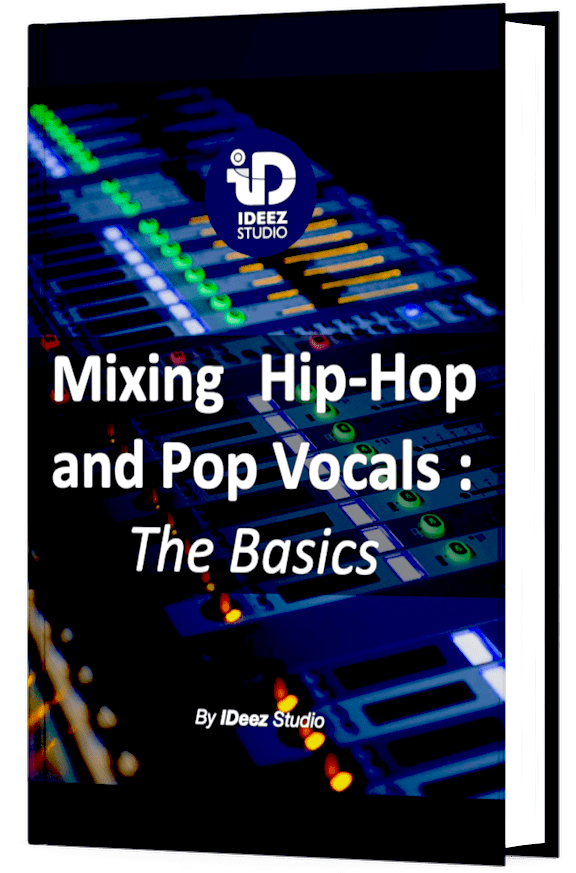In the music world, learning to mix is far from easy. It is an ability that requires time, investment and patience. But there are some very simple things that can speed up this process very quickly. Doing these 5 things in my daily life has greatly improved my mixing skills and allows me to make a living out of it.

Here are the 5 things you can do now to improve your mixing your mixing skills :
- Listen to music every day
- Compare your mixes to references
- Learn from your mistakes
- Do things 100%
- Be organized and methodical
If you’re really determined to get better at audio mixing, chances are that applying these 5 things will drastically improve your mixing skills.
1. Listen to music every day
For us who are interested in the field of audio mixing, this might seem completely normal or even banal. However, many people forget how beneficial listening to music can be for our brain. And, indirectly, without anyone realizing it, it improves your perception of details, spaces and depth.
The human ear is indeed a tool that needs to be constantly fed and trained. It is therefore impossible to become competent in the field of mixing without listening to music on a daily basis.
Don’t hesitate to listen to music in different environments either, this will teach your brain to quickly get used to new listening places. This is crucial in this field. It will also allow the ear to analyze more easily the balance between the different sources.
Last big advantage: You will be inspired by the ideas you hear, and therefore more creative. In fact, many people think that mixing is only about frequency and dynamic cleaning. But this is not the case at all.
The latest trends in audio mixing, especially in pop and hip-hop (in my opinion) tend to push mix engineers to be more and more creative. So this is clearly something to consider.
Pro Tip : If you have a CD player, insert it into your studio setup. Whenever you’re in your studio doing something other than mixing, play CD references of the songs you know best and let your brain naturally feed off your studio’s monitoring system.
Need a professional sound engineer specializing in pop and hip-hop mixing ? Great! Take a look at our services and let’s blow up your career together!
Let’s start now!
2. Compare your mixes to references
Whether you’re a relatively accomplished sound engineer or a singer/rapper looking to make your mixes sound more professional, this principle should be applied every day.
Know that even the most legendary sound engineers do it every day, so why not you?
Some people are stuck with this principle because they don’t want to be compared. You don’t want to compare the incomparable. You feel that you clearly don’t have the skills to compare your amateur mix to a professional mix. Which might seem normal!
In fact, it is simply a way to re-calibrate your ears and get as close as possible to a professional sound. Of course, you probably don’t have all the equipment that all the big studios have, but the goal is not to get exactly the same sound.
Keep this in mind: Using references re-calibrates your ears in real time to re-adjust and optimize your mix for better results.
Pro Tip : In your mixing template, add a track that you will call reference. In this track, you can insert a WAV file of a reference track that you think best suits the style, vibe and universe of the song you are working on. This will help you to stay on track and have access to your reference in one click.

3. Learn from your mistakes
For some people, this is not an easy task at all. And I can understand that. But sometimes you have to put your pride aside and accept both positive and negative feedback.
Believe it or not, the best judges are people who know nothing about mixing. Why is that? Because a mix is not made to be listened to by professional sound engineers, but by a general public. My best advice is to try to get as many opinions on mixes as possible from people around you.

It is important to be able to filter the feedback and not take everything at face value. But each feedback must be taken into account and analyzed quickly. You may find that you make some very big mistakes.
Pro Tip : Whenever you finish a mix, try to send it to someone you trust. Friend or family, sound engineer or not at all, always try to find someone who will give you feedback in their own way according to their knowledge.
4. Do things 100%
Don’t be afraid to turn the knobs, to push values to the extreme,… to do things 100%! It is so important!
Don’t forget that music is a fast moving business. We don’t have time to think for hours about a reverb time, about tenths of dB or about a choice of plugin.
Our job is to make decisions. When you don’t do things 100%, you simply don’t learn, because you won’t be able to judge the mix decisions you’ve made correctly afterwards.
If you’re already working for clients, you’re much more likely to get constructive feedback by doing things thoroughly than by doing them halfway. It’s an infallible truth!
Pro Tip : If you want to become a professional sound engineer, it is important to invest money in education, like Mix With The Masters for example. In these videos you will see how all mix engineers make real decisions and don’t procrastinate for too long. The best example is Chris Lord-Alge. He first pushes his knobs and faders all the way up, then makes a quick decision based on what he hears, that’s clearly the best way to go.
5. Be organized and methodical
In purely practical terms, this is the most important tip on this list.
Indeed, being structured and methodical will save you hours and hours of “unnecessary” work. So this is not really a tip to improve your mixing skills, but rather to be more efficient. Two things are important :
- Have an organized session. It is therefore essential to have session templates. Each person has different needs and habits, but when it comes to templates, your mixing template has to have :
A. A system that creates in advance what you do in each mix
B. A bus system that will help you to work in groups (lead bus, mix bus, fx bus,…)
C. Colors
D. Correct track names

- Have a structured mind. Okay, I know, this might sound very philosophical, but your mind is your guide. Which means that if it’s unstructured, you’ll quickly get lost in your ideas. Here are the important questions to ask yourself during the audio mixing process :
A. In what order will I proceed ?
B. What am I going to do next ?
C. Why am I doing this action ?
D. How will I do achieve my next action ?
In my early years, I thought having an organized session was enough. But my mind was not at all. I wanted to filter my backing vocals while I was choosing a reverb for the lead vocal, I was switching from one track to another without having a finished result,… It was a mess!
As soon as you understand and apply this, I can swear that you will save an incredible amount of time.
Conclusion
Audio mixing is an area that often requires a lot of attention to detail. But as with everything, you need a solid foundation to dig deeper. When you get stuck somewhere in your mixing process, think about these 5 simple things, because it might be one of these 5 things that is blocking you.
What’s really cool about these 5 very simple things is that they can all be worked on in different time frames. Being organized, for example, is worked on in the moment. But listening to music will be done over several months, over a much longer period of time. Your schedule will never be an obstacle. So… No excuse!
My favorite tools for mixing pop and hip-hop music:
Plugins
In the field of auto-tune, I’m convinced that nothing’s better and more efficient than Antares Auto-Tune Pro. As for the EQ’s, FabFilter Pro-Q3 and Slate Digital Infinity EQ are, in my opinion, the best tools. For compression, I have 2 favorites plugins: Waves RComp and UAD EL8 Distressor.
As for reverb, I’m a big fan of the Soundtoys Little Plate, but generally, I go for the Valhalla VintageVerb for its versatility. I also love the Arturia Rev PLATE-140 and the UAD Pure Plate for its organic side.
Headphones
The closed headphones I love and will always love using for mixing pop and hip-hop music are the Beyerdynamic DT-770. As for the best open-back headphones, I use the Sennheiser HD600 headphones, and I’m really happy of them!
Monitors
Having a pair of Yamaha HS7 in its studio or home studio is always cool for more excitement while listening to your mixes. The Adam Audio T7V monitors are also super accurate. In my studio, I also have a pair of Genelec 8030 for their reliability.
Hardware gear
For anyone who wants to start using hardware in their mixes, I always recommend these 2 units from Klark Teknik: the EQP-KT and the 76-KT. Don’t forget to use good converters, such as the Apollo interfaces. This is essential for a good rendering.






